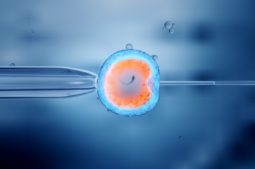The pursuit of pregnancy through assisted reproduction is inherently more complex than natural conception. Coping with a treatment failure is consequently more challenging. The journey through infertility is often emotionally taxing, wearing down a patient’s emotions and hope. Recognizing the significance of a failed In Vitro Fertilization (IVF) cycle, this article discusses how to face the aftermath of a negative IVF result.
Reasons for a negative IVF
In some cases of infertility, it can be challenging to determine the reason for the failure of the IVF treatment. Nevertheless, a prior diagnosis will always be very helpful. We frequently encounter patients in our clinics with incorrect or insufficient infertility diagnoses. In general, some of the most common causes of IVF failure include:
- Poor quality of eggs or sperm, leading to suboptimal embryos.
- Immunological disorders.
- Uterine malformations.
- Genetic diseases or incompatibilities (in the case of couples)
- Advanced maternal age
Coping with subsequent IVF cycles
We have already mentioned that accepting a failed IVF (In Vitro Fertilization) is not easy, especially on the emotional front. Nevertheless, there are some tips that can be helpful in facing the negative beta and beginning preparations for a new IVF attempt:
- Avoid self-blame: Questions like “What did I do? What didn’t I do? What should I have done?” are not helpful for coping with the negative outcome or preparing for the next attempt.
- Allow yourself to express emotions, including crying if needed.
- Engage in relaxation exercises such as yoga, mindfulness, and breathing exercises to reduce anxiety and foster a positive attitude.
- Share your feelings with someone close if it helps you process the negative result.
- If you had shared your fertility journey, ask your close ones not to ask questions and assure them you’ll share when you’re ready, avoiding uncomfortable situations.
- Seek professional psychological help if the negative result causes significant distress, anxiety, or emotional stress.
Chances of success after negative IVF
The importance of an accurate and timely diagnosis of infertility has already been emphasized. After a failed attempt at In Vitro Fertilization (IVF), this remains crucial, as it is necessary to review and update the diagnosis for the woman or the couple. This process will also guide the decision of when to attempt IVF again, including an approximate number of new attempts.
Furthermore, all these recommendations must be personalized. The diagnosis for a patient or a couple with poor embryo quality is not the same as a case where the embryos are of good quality, as other factors come into play. Additionally, the process of a new IVF attempt after a negative result will differ if the patient has cryopreserved embryos from the previous cycle or if she needs to start the entire process anew to obtain new oocytes.
Therefore, it is indeed possible to achieve pregnancy after a failed IVF attempt, but it is essential to examine what went wrong and tailor the protocols accordingly.
Failed implantation symptoms
Failed implantation refers to the embryo’s inability to nest and establish itself in the uterine lining after an IVF embryo transfer. Symptoms of failed implantation may include:
- Menstrual bleeding.
- Lack of pregnancy symptoms, such as increased breast sensitivity or nausea.
- Negative pregnancy test.
What happens to your body after failed IVF?
After a negative IVF cycle, the patient’s body undergoes a process similar to a menstrual cycle. Menstruation occurs as the uterine lining, prepared for implantation, sheds. Emotionally, the patient may experience sadness, frustration, or stress, necessitating the addressing of these emotions, potentially with professional help.
What to do after IVF failure
While some recommendations are mentioned throughout the article, here are some actions to consider after a negative IVF:
- Consult with the medical specialist to analyze results, study the reasons for failure, and propose future options.
- This specialist visit may involve adjustments to the treatment protocol or considering alternative options, such as egg donation.
- Seek emotional support, either professionally or from those close to you.
- Prioritize self-care and consider postponing a new IVF attempt.
At IVI, we can assist you
At IVI, we understand the importance of accurate diagnoses and personalized treatments to maximize success chances. In all our clinics, we have specialized psychology units focused on assisted reproduction to support you through the infertility process.





Comments are closed here.